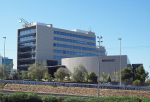
Entertainment
-
 DiscoverEU marks 40 years of Schengen with 40,000 free travel passes for young Europeans
The European Commission is celebrating the 40th anniversary of the Schengen Area by offering 40,000 young Europeans the chance to explore the continent through DiscoverEU, part of the31 October 2025Read More...
DiscoverEU marks 40 years of Schengen with 40,000 free travel passes for young Europeans
The European Commission is celebrating the 40th anniversary of the Schengen Area by offering 40,000 young Europeans the chance to explore the continent through DiscoverEU, part of the31 October 2025Read More... -
 Brussels universities to award honorary doctorates to Stromae, Lize Spit, and Amélie Nothomb
The Vrije Universiteit Brussel (VUB) announced on Monday that Stromae, Lize Spit, Amélie Nothomb, François Schuiten, and Ever Meulen will receive joint honorary doctorates from VUB and27 October 2025Read More...
Brussels universities to award honorary doctorates to Stromae, Lize Spit, and Amélie Nothomb
The Vrije Universiteit Brussel (VUB) announced on Monday that Stromae, Lize Spit, Amélie Nothomb, François Schuiten, and Ever Meulen will receive joint honorary doctorates from VUB and27 October 2025Read More... -
 Stolen Renaissance masterpiece returns to Italy after 52 years
After more than half a century, a stolen Renaissance painting has finally returned home to Italy. *Madonna with Child*, a tempera-on-wood masterpiece by Venetian painter Antonio Solario,31 July 2025Read More...
Stolen Renaissance masterpiece returns to Italy after 52 years
After more than half a century, a stolen Renaissance painting has finally returned home to Italy. *Madonna with Child*, a tempera-on-wood masterpiece by Venetian painter Antonio Solario,31 July 2025Read More... -
 Belgian seaside resorts: highlights of royal De Panne
While Ostend is often dubbed the queen of Belgium’s seaside resorts, the country’s coastline offers many other gems worth discovering. In this series, Belga English explores four distinctive20 July 2025Read More...
Belgian seaside resorts: highlights of royal De Panne
While Ostend is often dubbed the queen of Belgium’s seaside resorts, the country’s coastline offers many other gems worth discovering. In this series, Belga English explores four distinctive20 July 2025Read More... -
 Louis Vuitton named suspect in Dutch money laundering probe
Luxury fashion house Louis Vuitton has been named a suspect in a Dutch money laundering investigation, according to the Dutch Public Prosecution Service (OM). The OM alleges that18 July 2025Read More...
Louis Vuitton named suspect in Dutch money laundering probe
Luxury fashion house Louis Vuitton has been named a suspect in a Dutch money laundering investigation, according to the Dutch Public Prosecution Service (OM). The OM alleges that18 July 2025Read More... -
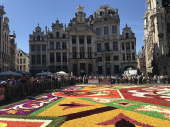 Brussels tops global rankings for international meetings as tourism soars to new heights
Brussels has once again secured its position as the world’s top city for international meetings, according to the latest annual report from the Union of International Associations (UIA).26 June 2025Read More...
Brussels tops global rankings for international meetings as tourism soars to new heights
Brussels has once again secured its position as the world’s top city for international meetings, according to the latest annual report from the Union of International Associations (UIA).26 June 2025Read More... -
 Coffee prices keep climbing in Czech establishments
The cost of a cup of coffee in Czech restaurants and cafés has increased by 4% over the past year, now averaging CZK 57.80, according to data from the Dotykačka point-of-sale system.15 June 2025Read More...
Coffee prices keep climbing in Czech establishments
The cost of a cup of coffee in Czech restaurants and cafés has increased by 4% over the past year, now averaging CZK 57.80, according to data from the Dotykačka point-of-sale system.15 June 2025Read More...
Politics
-
 French Parliament weighs wealth tax as budget gap looms
France’s government on Friday defended its proposed alternative to a sweeping tax on the ultra-rich, as lawmakers clashed over how to tap the country’s highest fortunes to help close aRead More...
French Parliament weighs wealth tax as budget gap looms
France’s government on Friday defended its proposed alternative to a sweeping tax on the ultra-rich, as lawmakers clashed over how to tap the country’s highest fortunes to help close aRead More... -
 French lawmakers approve unexpected tax increases on global companies amid budget turmoil
French lawmakers have passed two unexpected tax hikes targeting multinational corporations, challenging Prime Minister Sébastien Lecornu’s government andRead More...
French lawmakers approve unexpected tax increases on global companies amid budget turmoil
French lawmakers have passed two unexpected tax hikes targeting multinational corporations, challenging Prime Minister Sébastien Lecornu’s government andRead More... -
 European Parliament urges continued support for Belarusian democratic forces
The European Parliament has renewed its call for unwavering support to Belarusian democratic movements, condemning the ongoing repression under theRead More...
European Parliament urges continued support for Belarusian democratic forces
The European Parliament has renewed its call for unwavering support to Belarusian democratic movements, condemning the ongoing repression under theRead More... -
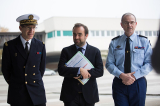 Protests sweep France as new Prime Minister steps in
France woke up to a wave of protests today, just as Sébastien Lecornu officially took over as the country’s new prime minister.Read More...
Protests sweep France as new Prime Minister steps in
France woke up to a wave of protests today, just as Sébastien Lecornu officially took over as the country’s new prime minister.Read More... -
 Marine Le Pen’s Appeal Trial Set for January, Months Before Key Elections
Far-right leader Marine Le Pen is heading back to court early next year, in a case that could determine whether she’s allowed to run in France’s 2027 presidential race.Read More...
Marine Le Pen’s Appeal Trial Set for January, Months Before Key Elections
Far-right leader Marine Le Pen is heading back to court early next year, in a case that could determine whether she’s allowed to run in France’s 2027 presidential race.Read More...
News
-
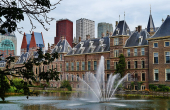 Government of the Netherlands launches nationwide campaign urging citizens to prepare for 72 hours without power or water
Amid rising geopolitical tensions and the growing impact of climate change, the Dutch government has launched a nationwide preparedness campaign encouraging citizens to ready themselvesRead More...
Government of the Netherlands launches nationwide campaign urging citizens to prepare for 72 hours without power or water
Amid rising geopolitical tensions and the growing impact of climate change, the Dutch government has launched a nationwide preparedness campaign encouraging citizens to ready themselvesRead More... -
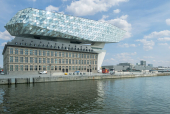 Nearly 20 tonnes of marijuana seized at Port of Antwerp in 2025
Belgian customs have intercepted almost 20 tonnes of marijuana at the Port of Antwerp since January, a record volume that dwarfs last year’s figures. According to data reported Monday byRead More...
Nearly 20 tonnes of marijuana seized at Port of Antwerp in 2025
Belgian customs have intercepted almost 20 tonnes of marijuana at the Port of Antwerp since January, a record volume that dwarfs last year’s figures. According to data reported Monday byRead More... -
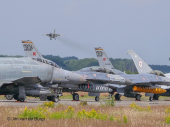 Belgian Defence Minister: drones over Kleine-Brogel likely on espionage mission
Belgian Defence Minister Theo Francken says the drones detected over the Kleine-Brogel air base on two consecutive nights were likely engaged in espionage. The Limburg installation is widelyRead More...
Belgian Defence Minister: drones over Kleine-Brogel likely on espionage mission
Belgian Defence Minister Theo Francken says the drones detected over the Kleine-Brogel air base on two consecutive nights were likely engaged in espionage. The Limburg installation is widelyRead More... -
 Night bus links Luxembourg to major European cities from December
Luxembourg will gain a new set of overnight travel connections this winter as Swiss operator Twiliner, working with the Emile Weber Group, launches its first long-distance night bus routes.Read More...
Night bus links Luxembourg to major European cities from December
Luxembourg will gain a new set of overnight travel connections this winter as Swiss operator Twiliner, working with the Emile Weber Group, launches its first long-distance night bus routes.Read More... -
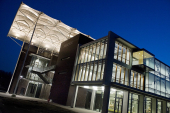 Flanders allocates €116 million to strengthen graduate courses
Flanders will channel an additional €116 million into college-based graduate programmes over the next four years, Education Minister Zuhal Demir announced on Radio 1 on Friday.Read More...
Flanders allocates €116 million to strengthen graduate courses
Flanders will channel an additional €116 million into college-based graduate programmes over the next four years, Education Minister Zuhal Demir announced on Radio 1 on Friday.Read More... -
 MEPs embark on mission to the Democratic Republic of the Congo
A delegation of eight Members of the European Parliament (MEPs) from the Committee on Development and the Subcommittee on Human Rights is beginning a three-day mission to theRead More...
MEPs embark on mission to the Democratic Republic of the Congo
A delegation of eight Members of the European Parliament (MEPs) from the Committee on Development and the Subcommittee on Human Rights is beginning a three-day mission to theRead More... -
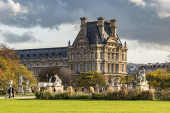 Louvre chief admits CCTV failures after $157 million jewellery heist
The director of the Louvre Museum has admitted to major security lapses after a daring daylight robbery saw thieves make off with more than $157 millionRead More...
Louvre chief admits CCTV failures after $157 million jewellery heist
The director of the Louvre Museum has admitted to major security lapses after a daring daylight robbery saw thieves make off with more than $157 millionRead More...

Most Read
- Teen held after US woman killed in London stabbings
- Football: Farhad Moshiri adamant Everton deal above board
- Greece hails new post-bailout chapter but concerns remain
- The Kokorev case caused wide discussion in Brussels
- EU accession talks stir debate in Moldova: insights from Gagauzia's leader, Yevgenia Gutsul
Economics
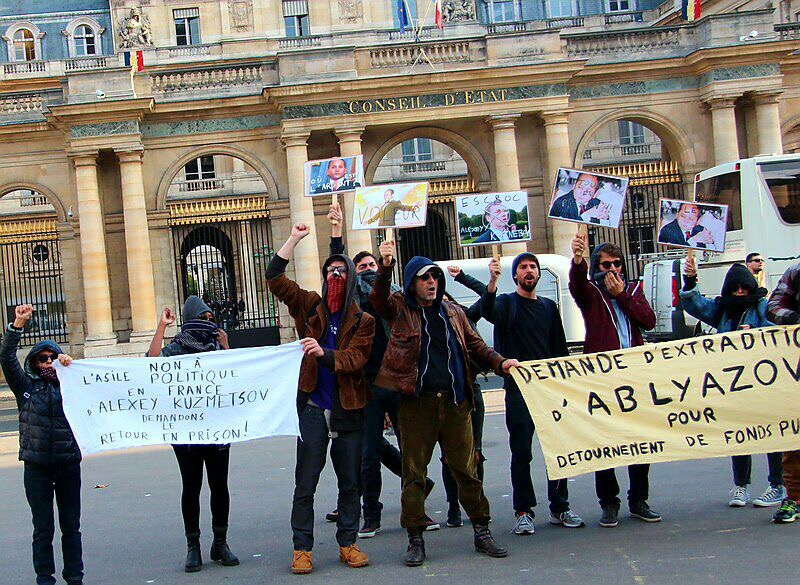
In Paris, near the building of the Council of State, a demonstration was held last week on 28 and 29 September against the policy of double standards towards international fugitives. Around 20-30 people had gathered to protest against the practice of granting asylum in France to foreign citizens accused of fraud and economic crimes on an international scale.
In particular, protesters were concerned about what they feel is a policy of double standards in France. Despite common obligations and established legal practice, some convicted criminals who are on international wanted lists and satisfy the conditions and procedures for their extradition, are nevertheless released due to politically motivated decisions and despite existing judgements by the courts and judicial authorities.
The participants at the demonstration chanted: “no to scammers”, “extradite scammers”, “extradite Kuznetsov”, “extradite Ablyazov”, “no negotiations with thieves”, “France does not participate in international crime”.
At the moment, in the territory of France, there are several controversial figures accused by a number of foreign countries of having committed economic crimes and fraud in substantial scale.

On September 28 2017 at 10am, the Conference Room of European’s People Party will hold a round table on the matter “Justice, Human Rights and Due Procedure in EU – the Case of Vladimir Kokorev,” presided by MEP Fulvio Martusciello.
Vladimir Kokorev, his wife Yulia and their son Igor, have been held for over 2 years in a prison of Las Palmas (Canary Islands, Spain) on a suspicion of money laundering in favor of the President of Equatorial Guinea, Teodoro Obiang. Despite the unusually prolonged detention without a trial, and the fact the investigation has supposedly started back in 2009, Mr. Kokorev and his family has not yet been formally indicted, nor presented with evidence of any wrongdoing.
Moreover, the attorneys of Kokorev family have provided the judge in charge of investigation with exhaustive documentary proof of legality of transactions deemed “suspicious” by the prosecution office of Las Palmas, and thus attesting to his innocence.
Furthermore, the case itself presents strong evidence suggesting severe police manipulation, such as deliberate mistranslations and misrepresentation of documents pertaining to the case, interference with IT devices and the reliance on a witness indicted for embezzlement and forgery.
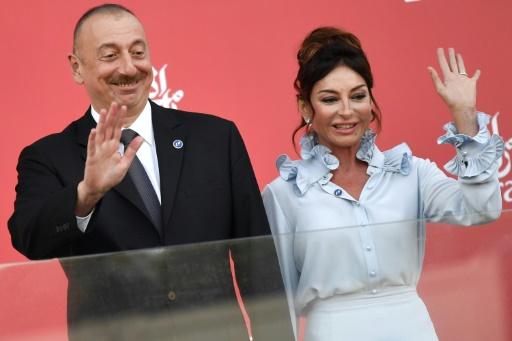
Azerbaijan's ruling elite ran a secret 2.5 billion euro ($2.9 billion) slush fund to pay off European politicians and launder money, according to an investigation by a group of European newspapers published Tuesday.
The fund operated for two years from 2012 to 2014 through bank accounts of four shell companies registered in Britain, according to the investigation by papers including The Guardian and France's Le Monde and published by the Organized Crime and Corruption Reporting Project.
Nicknamed the "Azerbaijan Laundromat", the origin of the fund is unclear "but there is ample evidence of its connection to the family of President Ilham Aliyev", the report said.
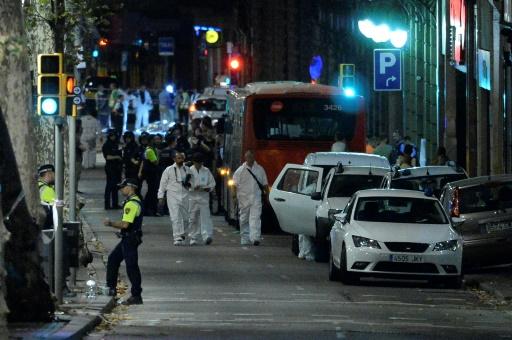
An Australian woman who fled in fear from the Barcelona attack has told how she was caught up in two other recent terror incidents in Paris and London during her European travels.
"I was in London at the time of the London Bridge attack, and we were also at Notre Dame the day the attack took place there too," Julia Monaco, a 26-year-old from Melbourne, told BBC Radio 5 Live.
She recounted how she and her friends took refuge inside a shop as crowds ran from a vehicle as it ploughed through pedestrians on the famous Las Ramblas boulevard in Barcelona on Thursday afternoon.

An Australian woman who fled in fear from the Barcelona attack has told how she was caught up in two other recent terror incidents in Paris and London during her European travels.
"I was in London at the time of the London Bridge attack, and we were also at Notre Dame the day the attack took place there too," Julia Monaco, a 26-year-old from Melbourne, told BBC Radio 5 Live.
She recounted how she and her friends took refuge inside a shop as crowds ran from a vehicle as it ploughed through pedestrians on the famous Las Ramblas boulevard in Barcelona on Thursday afternoon.
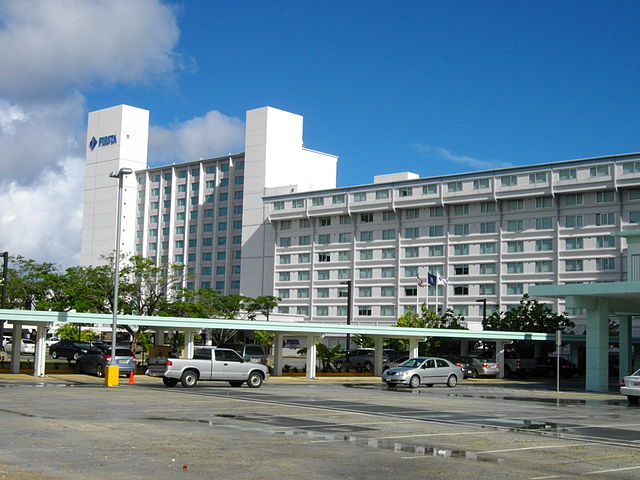
President Donald Trump on Friday turned up the heat on North Korea, warning Pyongyang that the US military is "locked and loaded" in the event of a misstep by the totalitarian state, despite mounting international calls for restraint.
Trump launched another salvo at the regime of Kim Jong-Un to keep its nuclear weapons and ballistic missile programs in check, as the North's official news agency accused the US of driving the situation "to the brink" of war.
The latest Twitter threat from the Republican billionaire leader came as concerns swelled worldwide that a miscalculation by either side could trigger a catastrophic conflict on the Korean peninsula.
"Military solutions are now fully in place, locked and loaded, should North Korea act unwisely. Hopefully Kim Jong Un will find another path!" Trump wrote from his golf club retreat in New Jersey, where he is spending two weeks.
The official KCNA news service countered in an editorial that "Trump is driving the situation on the Korean peninsula to the brink of a nuclear war," calling the US "the mastermind of nuclear threat, the heinous nuclear war fanatic."
Earlier Friday in Beijing, China -- Pyongyang's main diplomatic ally -- had urged Trump and Kim to tone down the saber-rattling.
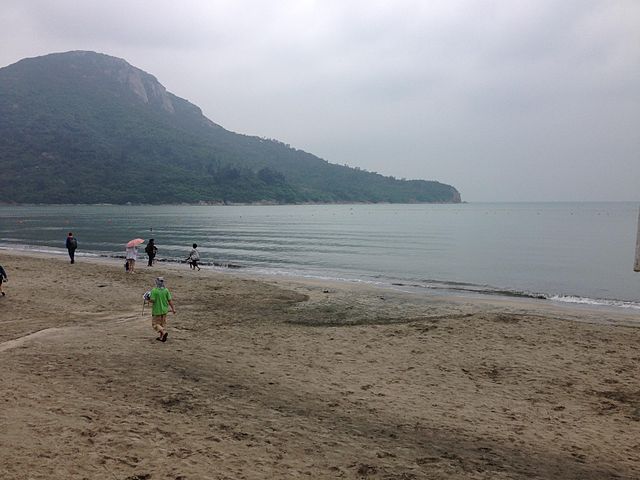
A clean-up operation was under way in Hong Kong Monday after a massive palm oil spillage from a ship collision in mainland Chinese waters clogged some of its most popular beaches.
The coast was coated with rancid-smelling sticky white clumps of the oil as it washed in Sunday, with 11 beaches still closed to swimmers Monday in the height of a summer heatwave.
There are still lumps of the solidified oil on the beaches and the sea water in some areas is greasy.
Hong Kong comprises more than 200 islands with glittering bays, but there are increasing concerns about pollution and rubbish blighting its shores.
On Pui O beach, on the island of Lantau, cleaners raked through the famous black sand Monday morning retrieving lumps of palm oil mixed with other trash, from plastic water bottles to children's toys.
Although there is still a red flag up and the beach is officially closed, some people still ventured into the water.
One 61-year-old surfer, who gave his name as Simon and is a regular at the beach, said there was still oil in the water.
"It got under my feet and on my board. It's all slippery," he told AFP.
"Yesterday there was big chunks along the beach and in the water."
He added that there was often rubbish on the beach, often left by visitors.
"I live here now, I have to put up with it. I don't like it," said Simon, who is an airport worker originally from Hawaii.
Beach announcements told determined swimmers at the closed beaches to get out of the water Monday.
But Agnes Mercado, 49, a regular at secluded South Bay on Hong Kong Island, was determined to take her morning dip, although she said she would not submerge her upper bod
"Of course I'm worried about it, but it's even worse than this on some days," she said of the pollution.
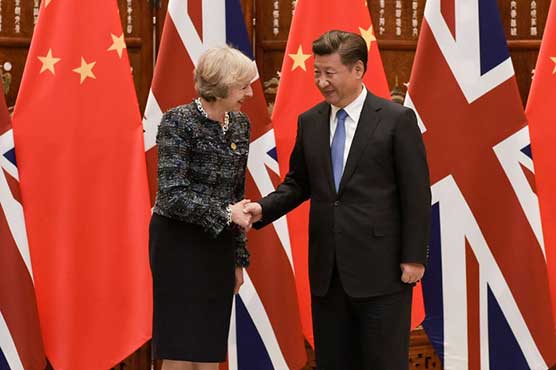
Southeast Asian nations feuded Sunday over how to respond to Chinese expansionism in the South China Sea, with Vietnam insisting on a tough stance but Cambodia lobbying hard for Beijing, diplomats said.
The debates among foreign ministers of the 10-member Association of Southeast Asian Nations (ASEAN) at a security forum in the Philippines were the latest in years of struggles to deal with competing claims to the strategically vital sea.
The ministers failed to release a customary joint statement after meeting on Saturday because of their differences on the sea issue, and follow-up negotiations on Sunday did not end the stand-off, two diplomats involved in the talks told AFP.
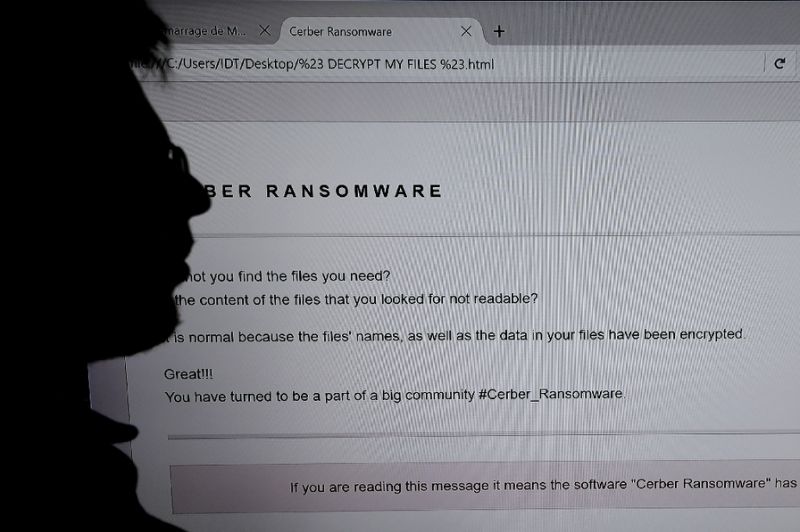
Ransomware demands which hit a clutch of multinationals Tuesday are the latest in a wave of international cyberattacks in recent months.
In Europe, Danish sea transport company Maersk, British advertising giant WPP and French industrial group Saint-Gobain all came under attack as did US pharmaceutical group Merck.
The attacking tool is believed to be ransomware of the so-called Petya malware type, which earlier affected firms in Russia including oil giant Rosneft and Ukraine.
The latest wave comes just six weeks after what the EU's law enforcement agency described as an "unprecedented" attack by WannaCry ransomware which hit more than 100 countries -- notably Britain's National Health Service.
The repeated waves of attacks have raised questions on how companies can protect themselves effectively.
- What is ransomware? -
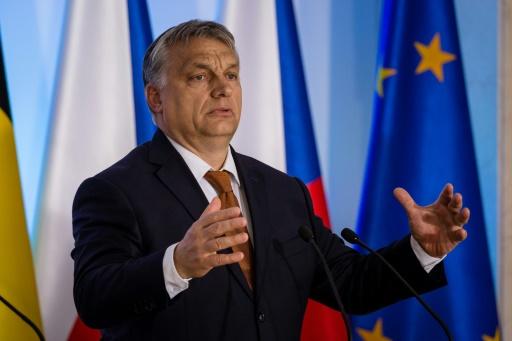
Hungary's populist prime minister said Monday he sees no chance for a single EU-wide migration policy, just days after the bloc launched legal action against Budapest for refusing refugees under a controversial solidarity plan.
"To say that there will be one integrated, single European migration policy, I do have my doubts and I do not see any chance for this," Viktor Orban told the Benelux and Visegrad group premiers meeting in Warsaw ahead of an EU summit in Brussels later this week.
"Hungary is open to any negotiations to this end but we would like to continue to remain realists," the Hungarian PM added.
The EU launched legal action last week against Hungary, Poland and the Czech Republic for refusing to participate in relocating 160,000 refugees under a 2015 plan set up when more than one million people landed on Europe's shores, mainly in Italy and Greece.
Brussels had set a June deadline for Warsaw and Budapest to start accepting mainly Syrian, Eritrean and Iraq asylum seekers. Prague has also come under pressure after effectively dropping out of the relocation plan.
Orban argued Monday that his government's rejection of refugees and migrants was intended to preserve the central European country's identity.















